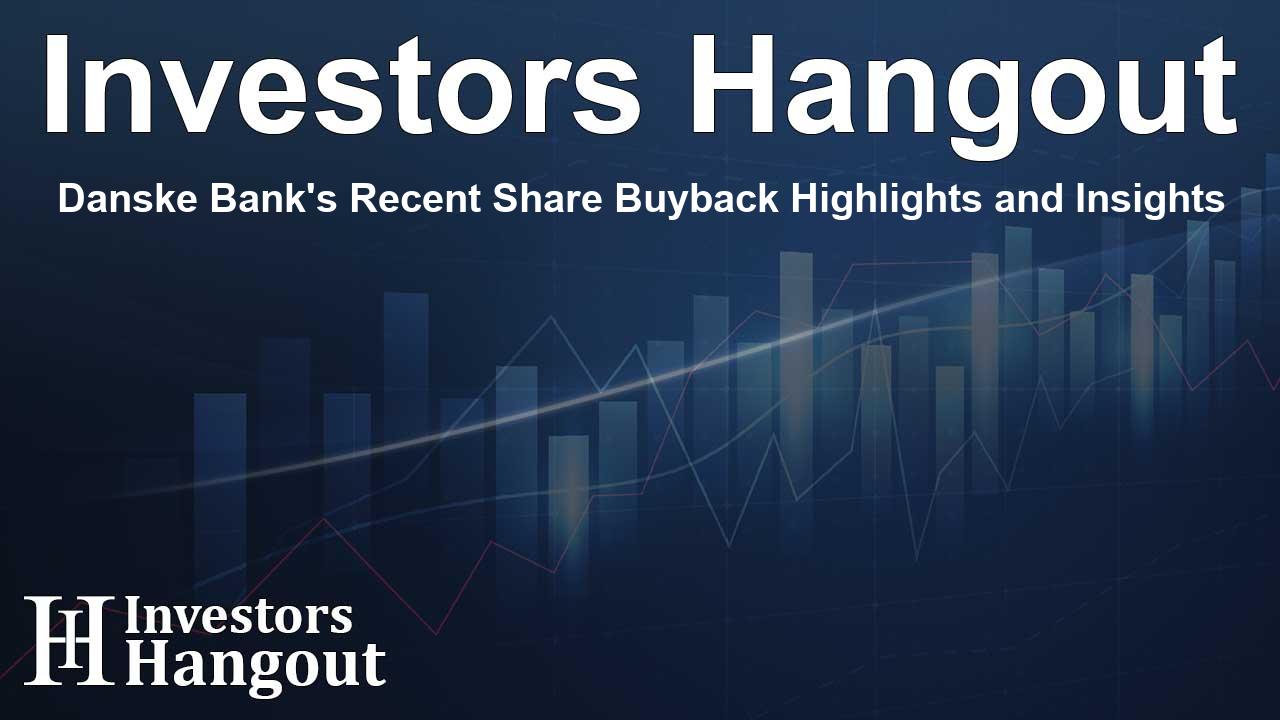Danske Bank's Recent Share Buyback Highlights and Insights

Danske Bank's Share Buyback Program Overview
Danske Bank A/S has been actively engaged in a series of share buyback initiatives, which are designed to enhance shareholder value and manage capital effectively. The current buyback program has a substantial budget of DKK 5 billion, enabling the bank to reacquire up to 45,000,000 shares within a specified time frame.
Understanding the Buyback Activities
Announced earlier this year, the share buyback program is set to run from mid-February to the early part of next year. It's crucial for stakeholders to recognize that these transactions are executed in compliance with the European Parliament's regulations concerning market conduct.
Recent Transactions Overview
During the recent week 25, significant transactions were recorded on Nasdaq Copenhagen. The table provides detailed insights into the number of shares bought back each day along with the corresponding volume-weighted average price (VWAP) and the total gross value of each transaction.
| Date | Shares Bought | VWAP DKK | Gross Value DKK |
|---|---|---|---|
| 16 June | 49,441 | 260.38 | 12,873,462 |
| 17 June | 50,000 | 257.78 | 12,888,760 |
| 18 June | 88,832 | 256.12 | 22,751,741 |
| 19 June | 101,760 | 254.54 | 25,901,899 |
| 20 June | 54,462 | 255.61 | 13,921,070 |
Total Descendants of the Buyback
As of this week, the total shares repurchased under this ongoing program exceed 7 million, amounting to approximately 0.868% of the company’s share capital. This strategic move not only stabilizes the stock price but also demonstrates Danske Bank's commitment to returning capital to its shareholders.
Future Outlook for Both the Company and Investors
Looking ahead, Danske Bank’s ongoing share buyback initiative is seen as a positive signal in the market. Investors can anticipate a continued emphasis on shareholder returns as the bank navigates through various economic challenges while aiming for sustainable growth.
Contact and Additional Information
For more insights into these transactions and the bank's ongoing initiatives, stakeholders can reach out to Claus Ingar Jensen, the Head of Group Investor Relations, at the contact number provided. It’s essential for investors and analysts to stay informed about such developments, as they can significantly impact investment decisions.
Frequently Asked Questions
What is the purpose of Danske Bank's share buyback program?
The share buyback program aims to enhance shareholder value by repurchasing shares and reducing the overall share count.
How much is Danske Bank planning to spend on this buyback program?
Danske Bank has allocated DKK 5 billion for its share buyback initiative.
What is the expected duration of the buyback program?
The program is set to run from February until early next year.
How does share buyback affect shareholders?
Share buybacks can lead to an increase in stock price and earnings per share, benefiting existing shareholders.
Who can investors contact for more information?
Investors can contact Claus Ingar Jensen, Head of Group Investor Relations, for further details.
About The Author
Contact Thomas Cooper privately here. Or send an email with ATTN: Thomas Cooper as the subject to contact@investorshangout.com.
About Investors Hangout
Investors Hangout is a leading online stock forum for financial discussion and learning, offering a wide range of free tools and resources. It draws in traders of all levels, who exchange market knowledge, investigate trading tactics, and keep an eye on industry developments in real time. Featuring financial articles, stock message boards, quotes, charts, company profiles, and live news updates. Through cooperative learning and a wealth of informational resources, it helps users from novices creating their first portfolios to experts honing their techniques. Join Investors Hangout today: https://investorshangout.com/
The content of this article is based on factual, publicly available information and does not represent legal, financial, or investment advice. Investors Hangout does not offer financial advice, and the author is not a licensed financial advisor. Consult a qualified advisor before making any financial or investment decisions based on this article. This article should not be considered advice to purchase, sell, or hold any securities or other investments. If any of the material provided here is inaccurate, please contact us for corrections.
